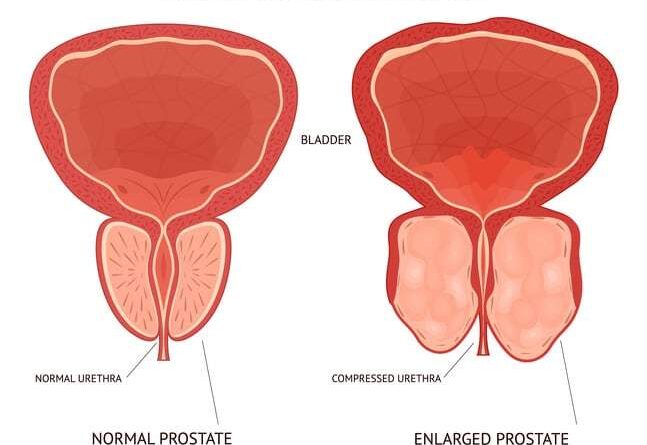
Introduction to Prostate Cancer
Prostate cancer is one of the most common types of cancer in men, often presenting without symptoms in its early stages. Let’s delve into understanding this enigmatic health condition.
Causes and Risk Factors
Although the exact cause of prostate cancer isn’t clear, several risk factors contribute to its occurrence, such as age, family history, and race. Lifestyle choices and dietary habits may also play a role.
The Prognosis of Untreated Prostate Cancer
So, what happens when prostate cancer is left untreated? The answer isn’t black and white; several factors influence the prognosis.
Factors Influencing the Prognosis
Age and Overall Health
The patient’s age and overall health status are significant considerations. Younger, healthier men may live longer than older men with additional health issues.
Cancer Stage and Aggressiveness
The stage and aggressiveness of the cancer significantly impact life expectancy. Early-stage cancers are typically less lethal than advanced ones.
Effects of Untreated Prostate Cancer
Living with untreated prostate cancer can be challenging, not only physically but also psychologically.
Physical Consequences
Untreated prostate cancer may cause urinary and sexual issues, pain, fatigue, and, in advanced stages, can spread to other body parts.
Psychological Impact
The emotional burden of living with an untreated disease can be substantial, leading to stress, anxiety, and depression.
Alternatives to Standard Treatments
Although skipping standard treatments might seem daunting, other strategies can help manage prostate cancer.
Active Surveillance
Active surveillance involves closely monitoring the cancer without immediate treatment, an approach often used for low-risk, slow-growing prostate cancer.
Lifestyle Changes
Adopting a healthier lifestyle, such as balanced diet and regular exercise, can help boost overall health and possibly slow down cancer progression.
The Importance of Regular Check-ups
Catching the cancer early can make a significant difference in life expectancy.
Catching the Cancer Early
Regular check-ups and screenings help detect prostate cancer early when it’s most treatable, improving the prognosis significantly.
The Role of Palliative Care
For advanced stages, palliative care focuses on relieving symptoms and improving quality of life rather than treating the cancer itself.
In Conclusion
It’s crucial to remember that each person’s journey with prostate cancer is unique. Although the question “how long can you live with untreated prostate cancer?” is valid, it’s unanswerable definitively due to individual factors. Regular consultations with healthcare professionals can help provide the most accurate information tailored to each individual.
Frequently Asked Questions
- What are the initial symptoms of prostate cancer? Initial symptoms can include difficulty urinating, blood in the urine, erectile dysfunction, and discomfort in the pelvic area.
- Are there any natural treatments for prostate cancer? While some dietary and lifestyle changes may help slow cancer progression, they should not replace conventional treatments unless recommended by a healthcare professional.
- How often should I get screened for prostate cancer? This depends on individual risk factors. Men aged 50 and above or those at a higher risk (due to family history or ethnicity) should discuss this with their healthcare provider.
- Can prostate cancer spread if left untreated? Yes, advanced prostate cancer can spread to other parts of the body, including the bones and lymph nodes.
- Is prostate cancer fatal if left untreated? The fatality of prostate cancer can vary greatly depending on the stage and aggressiveness of the disease, as well as the overall health of the individual.
- Are there any potential complications associated with untreated prostate cancer? Yes, potential complications include urinary symptoms like frequent or painful urination, erectile dysfunction, and if the cancer spreads, it may cause pain and fractures in the bones it has affected.
- What factors are considered when deciding on the management of prostate cancer? Factors considered include the patient’s age, overall health, the stage and aggressiveness of the cancer, the patient’s personal preferences, and potential benefits and risks of treatment.
- Are there different stages of prostate cancer? Yes, prostate cancer is typically classified into four stages, with stage I being early cancer that’s confined to a small area of the prostate, and stage IV being cancer that has spread to distant areas of the body.







